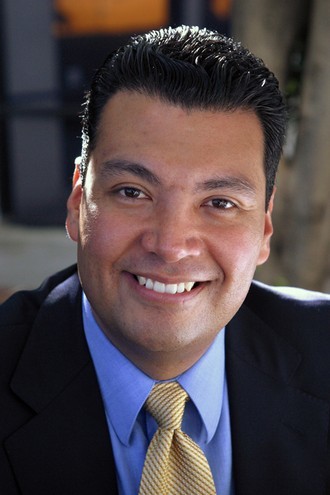California lawmakers are attempting to stem the rise in counterfeit compact and digital video discs by proposing a law that would allow warrantless searches of disc manufacturing plants. SB 550, however, has provoked concerns it violates provisions in the Fourth Amendment of the U.S. Constitution, which prohibits warrantless search and seizures.
State Sen. Alex Padilla (D-Pacoima) introduced SB 550, a bill that would grant authority for law enforcement officers who specialize in intellectual property to enter disc manufacturing plants without a warrant and conduct routine inspections to ensure plants are in compliance with state piracy laws. The bill would also allow enforcement officials to take a sample of four discs from each plant to create a database for comparison of discs seized in the future.
The bill was amended on August 15 and re-referred to the California Assembly Appropriations Committee on August 17, where it passed by a 14-3 vote. The bill will proceed to the Assembly Floor before being sent back to the Senate for concurrence.
Ninety Percent Illegal?
Bill Mabie, a spokesperson for Sen. Padilla, says Latin music still relies heavily on CD sales. Mabie claims nine out of 10 CDs on the market for Latin music were found to be produced illegally in 2010. “Last year alone, more than 820,000 illegal discs were seized by law enforcement authorities in California,” he said.
“These are high volume, highly profitable illegal operations,” Mabie said. “The fines that are currently in statute are not strong enough to deter individuals from pirating these discs, and increased fines will force violators to rethink their actions,” he said.
‘Closely Regulated Industry’
Sen. Padilla’s office points to Supreme Court cases to justify the warrantless searches. For example, they cite Supreme Court decisions allowing such searches of businesses considered to be closely regulated, such as liquor stores and places that sell firearms.
In Marshall v. Barlow, the Supreme Court made an exception to the amendment’s warrant requirement when the commercial property at issue is related to a “closely regulated industry.” The Court defined a “closely regulated industry” as one where “the pervasiveness and regularity of the government’s regulation reduces the owner’s expectation of privacy in his business records.”
However, qualifying as a “closely regulated industry” under the test set forth in Marshall v. Barlow may be difficult. Thus, both California and other circuit courts have applied a slightly different approach when addressing newer industries, ruling those that “involve a high risk of illegal conduct” or “facilitate a market for stolen property” may also be classified as closely regulated, Mabie said.
A Step Too Far
Luke Pelican, a policy fellow with the Competitive Enterprise Institute, a Washington, DC free-market think tank, disagrees disc manufacturing plants could be considered a “closely regulated” industry worthy of a Fourth Amendment exemption based on California law.
Pelican points out that although California enacted legislation to regulate the industry in the 1990s, the statute simply required that each disc be marked with a unique identifier or code to assist law enforcement in determining a disc’s origin. It also can impose criminal penalties for those who don’t comply with the law.
Pelican cites a 1987 Supreme Court Case in Fourth Amendment jurisprudence to conclude SB 550 is a step too far by the California legislature.
“The Burger Court considered a number of factors when deciding whether ‘vehicle dismantlers’ were such an industry, including licensing, registration, and fee requirements for such entities and extensive record-keeping requirements,” Pelican said. “The absence of these factors in this case would militate against a finding that the disc industry is ‘closely regulated,'” he said.
State Losing Revenue
Mabie describes the bill as being “very narrowly written” because it applies to only 70 facilities in the state. He says the bill has been thoroughly scrutinized by legislative committees and legislative counsel.
“There is a compelling state interest to make an exception in this case because of the large number of job losses to the industry, the diminished tax revenue, as well as the potential for crimes committed,” Mabie said.
Mabie points to a 2007 report to demonstrate lost tax revenue. The Los Angeles Economic Development Corporation estimated losses in LA County alone, due to counterfeit goods, deprived the state and local governments of nearly $500 million in lost tax revenue in 2005.
‘Antithetical to Democracy’
Carl Gipson, director of the Center for Small Business and the Technology/Telecom Project at the Washington Policy Center think tank in Washington state, recognizes piracy is a major concern for many U.S. industries, but he says that doesn’t excuse unconstitutional laws.
“Piracy costs millions in economic damages and thousands of jobs per year,” said Gipson. “But implementing legislation that allows law enforcement to ignore Fourth Amendment protections is antithetical to democracy and the rule of law itself, so it’s strange the recording industry is taking this approach,” he added.
“The bottom line is there will always be piracy, stealing, and dishonest people who try and take advantage of others,” said Gipson. “How we deal with them reflects how closely we adhere to our own principles, and this proposal seems to walk all over our predetermined Constitutional rights,” he added.
“The extent to which inspections of California manufacturers would help combat counterfeiting and copyright infringement is less than clear,” said Pelican. “And as some critics have suggested, the scope of the inspection regime may be too broad to serve as an adequate substitute for a warrant.”
Alyssa Carducci ([email protected]) writes from Tampa, Florida.




